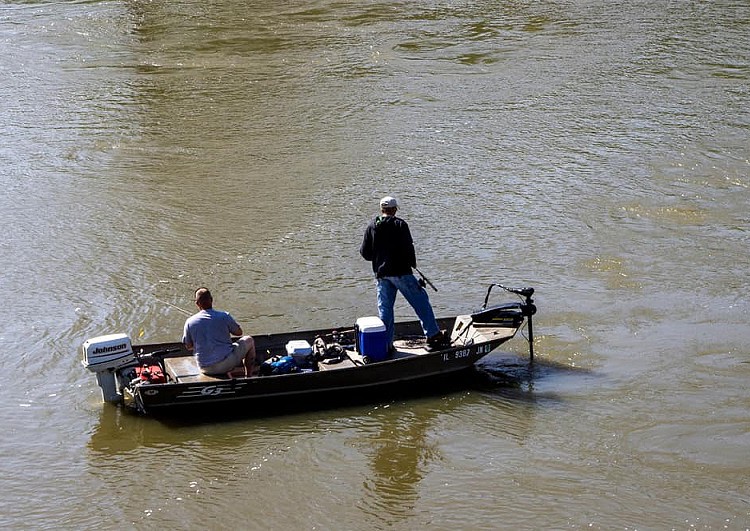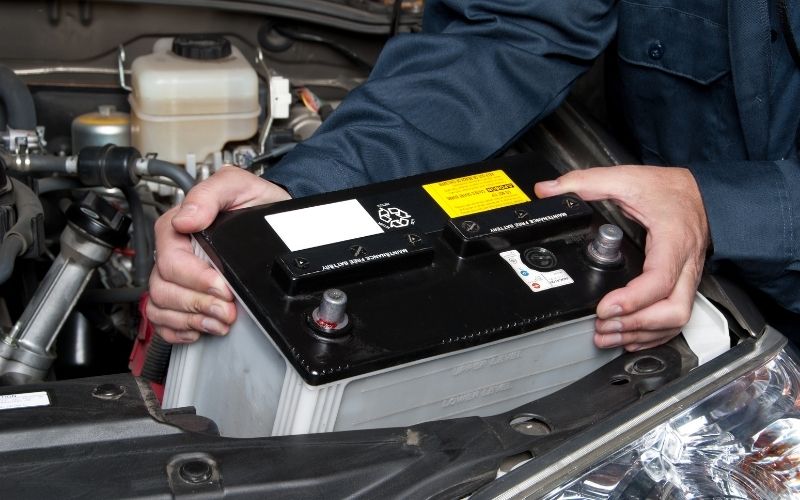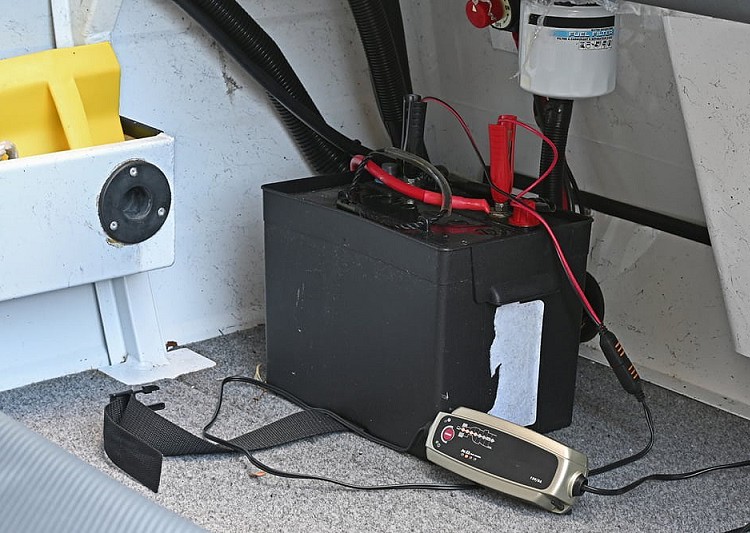It’s nearly boating season again, and you’re ready to get back out on the water. But when you test your boat batteries, you find that one of them is dead.
Marine batteries are more expensive than other types– for example, car batteries. Do you need a marine battery for your boat? Or can you replace your dead battery with a car battery or some other type?
Keep reading!
In this article, we’ll answer these questions and more.
Table of Contents
Do I Really Need a Marine Battery For My Boat?

The short answer is yes.
Marine batteries are made specifically for use near water and are more equipped to handle the special conditions they will face when used on boats. They are generally more durable and more waterproof than other types of batteries.
If you don’t use a marine battery for your boat, it may serve you well for a little while as long as you take care of it. But any other type of battery won’t last as long as a marine battery; it may corrode, leak, or fail in other ways, increasing the risk of fire or dangerous fumes on your boat.
Why Do Boats Need Special Batteries?

By their very nature, boats and their conditions put a lot of stress on batteries. Boats are prone to an increased amount of shocks and vibrations, wide temperature swings, and most, importantly, moisture.
To get the greatest battery life, you must use batteries designed for these particular abuses.
What’s more, most marine batteries are known as deep cycle batteries. This means they can be more fully discharged than regular batteries, usually anywhere from 50 to 90 percent of their total capacity.
Therefore, deep cycle batteries give you much longer running times than other types of batteries.
If your boat is powered by an outboard motor, and your battery is continuously recharged by the motor, then you may not need a deep cycle battery.
But for smaller boats powered by trolling motors, your battery may be the only source of power on the boat. You may need this longer running time to power the lights and other electrical units, trolling motors, fishfinders, etc. You wouldn’t want the battery to die after only a few minutes.
Can I Use a Car Battery For My Boat?

Technically, the answer is yes–for a little while. But using a car battery for your boat isn’t a good idea, and there are several reasons for this.
Car batteries are starting batteries–this means they are used to start the engine, then are continuously recharged by the alternator. So, as they power smaller electrical systems such as lights and radios, they receive a steady flow of energy, staying fully charged.
Car batteries are not deep cycle batteries; they would die in a short period of time if not being continuously recharged. If you use them as your sole power source, they will quickly exhaust their charge and will die, potentially leaving you stranded in the middle of a lake.
It’s also worth noting that car batteries are not designed for marine use. They are not supposed to get wet, and they are designed to absorb different types of shocks and vibrations.
In short, car batteries are simply made for different uses than marine batteries. For best results, leave the car batteries for automotive uses and use a marine battery for your boat.
3 Differences Between Car Batteries and Marine Batteries
In this section, we’ll take a closer look at some specific differences between car batteries and marine batteries.
1. Starting Vs. Deep Cycle
As noted above, car batteries are starting batteries–they are not meant to be discharged deeply and repeatedly.
In fact, car batteries are not supposed to be discharged more than 20 percent; they are designed to provide that initial burst of energy to get the motor running, then they are continually recharged as they power the car’s electrical systems.
On the other hand, most marine batteries are deep cycle batteries, meaning they can be more deeply discharged regularly without sustaining damage.
Some deep cycle marine batteries can be discharged as much as 50 to 90 percent, depending on the type of battery. For example, lithium deep cycle batteries can be more deeply discharged than sealed lead-acid deep cycle batteries.
Regardless of the type of deep cycle battery, you can be sure it will have a much longer run time without needing to be recharged.
2. Plate Size

A battery’s plate size affects how quickly it can be charged and discharged, as well as how fragile the battery is.
Car batteries have more of these lead plates, but they are thinner than marine batteries. Marine batteries, though they have fewer plates, are more durable because the plates are thicker and tougher.
This gives marine batteries the ability to handle more wear and tear than car batteries. Marine batteries are much less fragile than car batteries.
3. Construction

Marine and car batteries appear to be built similarly, as both have to take a fair amount of abuse. But marine batteries are generally built better and stronger.
Marine batteries are fully sealed so water doesn’t get inside and so battery fluid cannot leak from them. For this reason, they can be mounted in any position on the boat, get shaken up, and have water splashed on them without sustaining damage.
Car batteries are not made for water exposure and must be kept upright. Otherwise, they may leak battery fluid, putting your boat and your passengers at risk for fire and toxic exposure.
Conclusion
It’s important that you use marine batteries on your boat because they are specifically designed for use around water. They are more durable and longer-lasting than car batteries, and they will also provide you with a longer running time than other types of batteries.

Sarah Hood has been writing for Anchor Travel since 2021. When she’s not writing, she enjoys cooking, singing, and spending time in the great outdoors.

